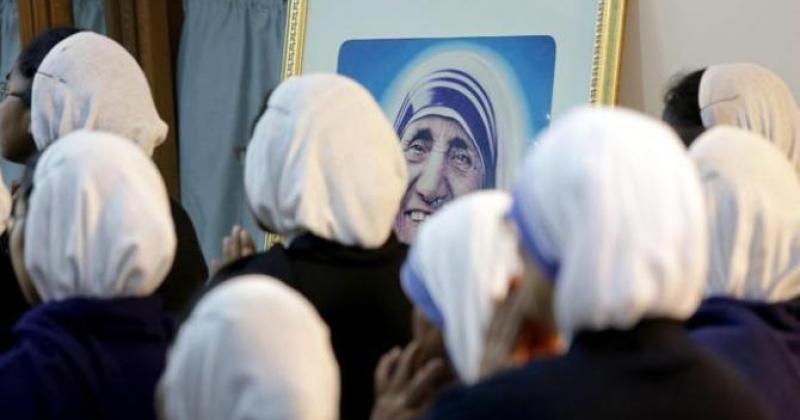The Archbishop of Calcutta says Mother Teresa “made of her life a corporal and spiritual work of mercy” and is an antidote to today’s “throwaway culture”.
“Compassion and inclusion”: these are the key words for understanding and remembering the figure of Mother Teresa of Calcutta on the day her canonization was announced. This is according to Calcutta’s archbishop, Thomas D’Souza, who cannot hide his excitement as he tells Vatican Insider about the enthusiasm with which the Church in India welcomed the news of the Pope’s approval of the miracle the woman in the white sari is credited with. Francis agreed to promulgate the decree that will proclaim her a saint in the Year of Mercy.
“It couldn’t have come at a better time,” D’Souza said, beaming. He expressed his appreciation for Francis’ “felicitous and timely decision”. “Mother Teresa,” he observed, “gave her life to the poor, she made of her life a work corporal and spiritual mercy simultaneously. She is a point of reference for our Church: she teaches us to put mercy and compassion – especially for the poor and among the poor – at the centre of the Church’s action.”
“Mother Teresa did her utmost to restore dignity to every human being, particularly the sick, those with leprosy, outcasts, the excluded and the dying. In the time of the Jubilee we feel particularly and deeply inspired by her,” he continued, recalling that “every gesture Mother Teresa made was in the name of faith, recognising and loving the poor in the poor and suffering Christ”.
Another core aspect according to the Archbishop of Calcutta is this: “Mother Teresa is also the saint of inclusion. Her life and works and are an example to the whole Church as they are an antidote to today’s throwaway culture. Mother Teresa excluded no one, she bore testimony to the culture of embracing others without reserve or discrimination. Through her work, she showed that God’s mercy leaves no one out.”
In this very context, D’Souza notes, in a country like India – a pluralistic nation marked by the return of closed mindsets, intolerance and identitarian violence rooted in religion, ethnicity and cast differences, a phenomenon sociologists have referred to as “communitarianism” – “Mother Teresa, a figure who is appreciated by the Hindus and other religions, can contribute to dialogue and harmony: in her lifetime, she helped, assisted and benefited all human beings, without discriminating on the basis of race, cast, language and faith. She served humanity and gave herself to others without judging or labelling them.”
In this sense, the bishop therefore sees her as a fully Indian saint: “We felt that Mother Teresa was “our” saint. Indians are proud of her. Mother Teresa’s canonization is a gift for Calcutta, for the Church and for the whole of India,” she remarked.
In a Mass of thanksgiving that is to be celebrated at the Missionaries of Charity’s Mother House in Calcutta, the order founded by Mother Teresa in 1950, D’Souza will express his gratitude “to God for the gift made to our Church and to Pope Francis”: “We shall pray that Mother Teresa’s example will continue to illuminate our path, which will accompany us in this Jubilee Year ad forever.”
The saint’s fellow sisters are jumping for joy. Today there is a network of 4,500 nuns working in 130 countries worldwide, running 700 houses or institutes dedicated “to the poorest of the poor”: children who have been abandoned, people with mental disabilities or leprosy, the dying, teenage mums and AIDS sufferers.
Sunita Kumar, spokeswoman for the Order’s Indian branch, who worked closely with Mother Teresa for many years, underlined one crucial aspect in relation to India: “Mother Teresa never proselytised or sought to convert people to the Christian faith: this was not her way. Her approach was one of compassion and closeness to suffering humans and anyone in need.”
In recent months, groups of Hindu radicals criticised and attempted to delegitimise the work of the new saint. According to Mohan Bhagwat, leader of the Rashtriya Swayamsevak Sangh (National Volunteer Organisation) extremist group, the woman “helped the poor in order to achieve her real goal, which was to convert them to Christianity”.
“It’s only extremist fringes,” who hold such views, says Bishop D’Souza. “Most Indian citizens of all faiths, love Mother Teresa, who was granted Indian citizenship in 1948. Her legacy will continue to inspire Christians in India and act as an example for a Church that is always by the side of the poor and the oppressed.”
